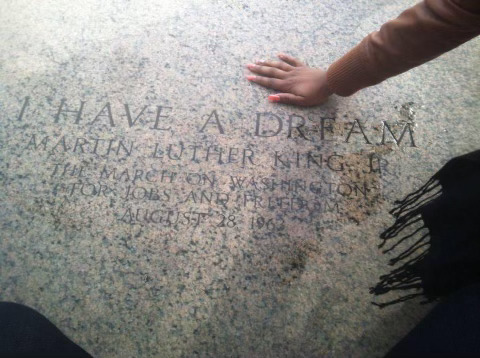Since 1986, every third Monday of January has marked the celebration of Martin Luther King Jr. Day. King is a monumental figure of the civil rights movement who distinguished himself by the nonviolence he preached.
King became famous partially because of his 1963 I Have A Dream Speech. But King was more than just a dreamer, he was a leader. He not only led a church, he also led and fought for his community: the African American community.
In fact, even the I Have A Dream Speech that holds King’s legacy was about more than just the dream. Perhaps, because many of us have only listened to the dream and not to the reality of what was happening or the danger and sufferings that gave birth to the dream, I would like to take you on a voyage to analyze MLK’s I Have a Dream speech, through the lens of today’s society.
“One hundred years later, the Negro still is not free.”
Now of course slavery was over, but the end of slavery did not result in freedom for black people. Instead it gave birth to various forms of oppressions that stripped away the few rights black people were just getting to enjoy. Jim Crow laws, mass incarceration, redlining: All these oppressions were part of a system that made Black people the most vulnerable to a variety of health problems, most recently Covid-19.
Today, 155 years after the 13th Amendment ending slavery was ratified, “the Negro lives on a lonely island of poverty…”
In 2017, USA Today reported that over 9 million African Americans (23%) lived below the poverty line. Although Black Americans represent only about 12.5% of the nation’s population, they account for more than 21% of the nation’s poor. This is likely to get worse given that the Covid-19 has caused the Black unemployment rate to rise up to 8%.
“The Negro is still languished in the corners of American society and finds himself an exile in his own land…”
This remains true, as we find large segments of Black culture that have yet to be integrated into broader American culture. Due to this lack of recognition and appreciation, Black America has been forced to create platforms that celebrate and preserve its culture.
This explains the need for and existence of Black American TV networks such as Own, TV One, BET Network etc., and African American award shows like the AALA (African American Literacy Awards), ACTSO ( Afro-Academic, Cultural, Technology and Scientific Olympics) just to name a few.
I don’t mean to delegitimize the achievements of the civil rights movement to date, but as King said “ 1963 is not an end but a beginning.” The Black Lives Matter movement represents the continuity of the civil rights movement but also of its unfinished business.
As King said: “We can never be satisfied as long as the negro is the victim of the unspeakable horrors of police brutality.” Who hasn’t seen the video of George Floyd pleading for his life? Who hasn’t heard of Breonna Taylor, Elijah McClain? The list goes on and on, yet rarely if ever is anyone punished for the murder of innocent Black people.
Truth be told, America has come far since the I Have a Dream Speech, but as King himself said: “We must make the pledge that we shall always march ahead.”
America has elected its first Black president, and its first Black woman vice president. Georgia elected its first Black senator who happens to inhabit King’s old pulpit at Ebenezer Baptist Church in Atlanta.
Now more than ever, we as a society have to protect our gains and strive to achieve more.
Happy Martin Luther King Jr. Day!




